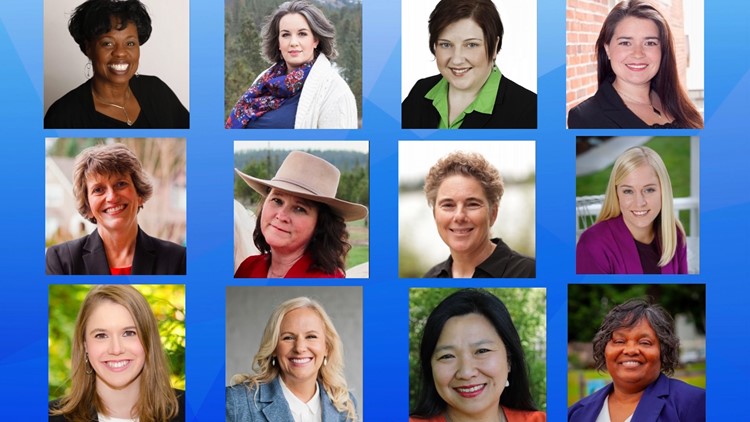Washington's August primary results will be certified this week and the results show women running for office could set new records this fall.
“I’ve never seen a year like this,” said Cathy Allen, national vice president of the National Women’s Political Caucus.
Female candidates advanced to the general in the state’s top congressional races, as well as the most competitive state legislative races.
Dr. Kim Schrier, a first-time female candidate, emerged as the Democratic candidate to face Republican Dino Rossi in the open-seat 8th Congressional District; the 5th Congressional District features Republican incumbent Cathy McMorris Rodgers and Democratic challenger Lisa Brown.
Southwest Washington's 3rd Congressional District features Republican incumbent Jaime Herrera Beutler and Democratic challenger Carolyn Long. The U.S. Senate race also features two women, Democratic incumbent Maria Cantwell and Republican challenger Susan Hutchison.
At the state legislative level, 87 female candidates advanced to the November general election, according to the Center for Women in American Politics.
“A lot of women were like, ‘you know what, if it's not me, who will it be, and so they're stepping up to represent their communities,’” said Samantha Casne, president of the National Women’s Political Caucus of Washington, a group that recruits and trains female candidates.
More than 90 percent of their endorsed candidates, this year, made it through the primary, representing a diverse range of backgrounds and professions from military to tech to teaching.
“We’re seeing an increased number of women of color, we're seeing an increased number of young women. Just women from all diverse spectrums are running for office,” said Casne.
It’s estimated around a third of the women are first-time candidates, according to Allen. In Washington’s 26th district, first-time female candidates currently hold the lead in all three races in that district, a Senate seat and two House positions.
“Women who are first-time candidates realized early on that wasn't going to be a detriment; the public actually wanted somebody different,” Allen said of an apparent shifting sentiment this year.
“I think people are looking for change at all levels of government, and women represent that,” Casne added.
Allen also noted that women stressed the ability to “work collaboratively” as a key part of their message. If that message continues to resonate, Allen and Casne note history could be made in November, ultimately bringing more gender diversity, and diversity overall, to Olympia.
“I’m just so happy that I finally have a year that is really truthfully is going to be year of the woman,” said Allen. “If you take a look at it, other years were good, but if we get to 40 to 43 percent--first in the country again--we will set records.



